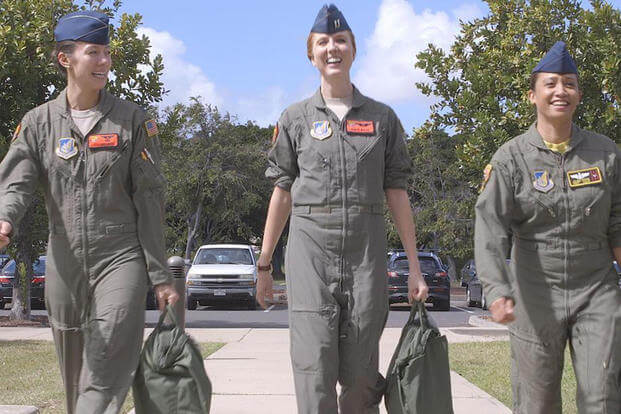A recent USA Today article asks the question: Are female veterans struggling to break into the civilian job market?
The numbers don't seem to lie. According to the USA Today article, the unemployment rate for female veterans of the Iraq and Afghanistan wars was 13.5% in January, more than 5% higher than the average for non-veteran adult women. Unemployment among those same female veterans was also more than 3 percentage points higher in December 2010 than in December the previous year, despite the dropping of national unemployment rates in the same span.
Adding further fuel to this fire is a recent survey by the nonprofit Business and Professional Women's Foundation, which determined that it takes a female veteran an average of eight months to find a civilian job.
The survey also found that even seven years after leaving the military, almost half of female veterans still haven't adjusted to the work world. Maybe most alarming is government data that indicates that female veterans are twice as likely to become homeless as women who never served in the military.
What is the reason female veterans are encountering such troubles in the job market? USA Today suggests that the factors below are affecting their transitions; to help you overcome these obstacles, we also include some tips of our own.
1. Certification Issues
Jobs outside the military have advanced, with continuing education and advanced certifications becoming more necessary. Said former Navy electronic communications systems specialist Christa Fazio: "In some areas, I'm overskilled, but in some areas, like professional certifications, I'm way behind the curve ball."
Solution: If you're behind the curve on your education and certifications, time to roll up your sleeves and check out education programs (be sure to use your military education benefits, such as the GI Bill) that get you up to speed. Plenty of college and certification programs are out there.
2. Translating Skills
As you might expect, it can be difficult to translate your military skills to a civilian context. Female veterans are reporting issues with explaining their military roles and responsibilities when interviewing for civilian jobs. Said Holly Mosack, who worked in public affairs in the Army and provided personnel and administrative support to combat forces: "Even if I said I had an HR background, the civilian sector wouldn't agree."
Solution: For suggestions on how you can present your military skills in the best light for a civilian job, check out Translating Your Resume Into English and the Military Skills Translator.
3. Lack of Support
According to USA Today, "Researchers and advocacy groups point toward a Veterans Affairs system that doesn't adequately meet women's health care, child care and psychological needs; a tendency among women to serve as a primary caregiver for children; and a civilian sector that may not fully understand the role of women in the military."
Solution: Reach out to other veterans and other job hunting resources that can offer tips and support. Take advantage of any networking and support groups you can find, from expanding your veteran career network to attending career fairs.
Want to Know More About the Military?
Be sure to get the latest news about the U.S. military, as well as critical info about how to join and all the benefits of service. Subscribe to Military.com and receive customized updates delivered straight to your inbox.












